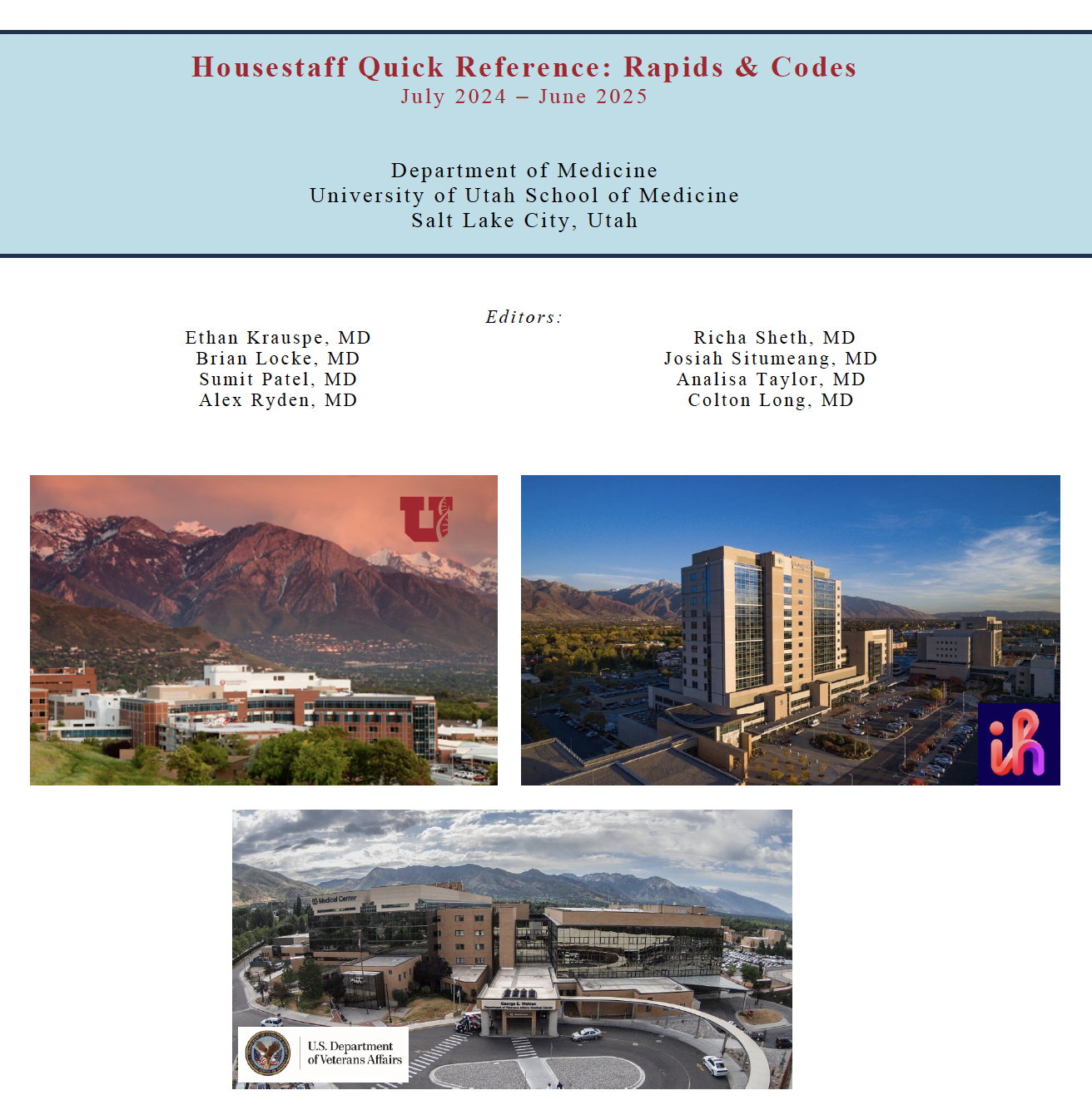U of U IM Codes and Rapid Responses
Overview:
Target Audience: Rising-PGY2s who will soon be leading Code Blue/Rapid response teams
Learning Objectives
Assume and communicate team leadership immediately upon arrival.
Identify VF/VT on the monitor and deliver shocks when warranted
Escalate care and marshal resources appropriately
Operate the Zoll R-Series defibrillator safely and efficiently.
Conclude the event and debrief.
Didactics alone have limits. Regular review (bookmark this!), simulation, and feedback (debrief!) will advance your skills further.
Methods:
We surveyed stakeholders from Code Blue and Rapid Response Teams—including senior residents, nurses, respiratory therapists, and quality leads—to identify the most frequent and impactful errors during resident-led responses. Three themes emerged:
Unclear team leadership , leading to confusion in role assignments, low psychological safety, and decreased collaboration. (Steinbach, Jennerich, and Çoruh 2024)
Failure to cardiovert or defibrillate shockable rhythms
Delayed critical decisions (calling for help, initial stabilization, or transpor to ICU )
This module targets these issues. Sessions are small-group and interactive, designed to draw on your personal experiences, encourage discussion, clarify questions, and conclude with hands-on practice.
Please let the CMRs (or us) know when events, near-misses, or big-wins happen. It’ll help us keep this seminar relevant.
Agenda
Pre-Seminar Survey (Closed)
15-minute sessions on necessary micro-skills.
Scenarios (in person, done with Zoll)
Post-Seminar Survey (Closed)
